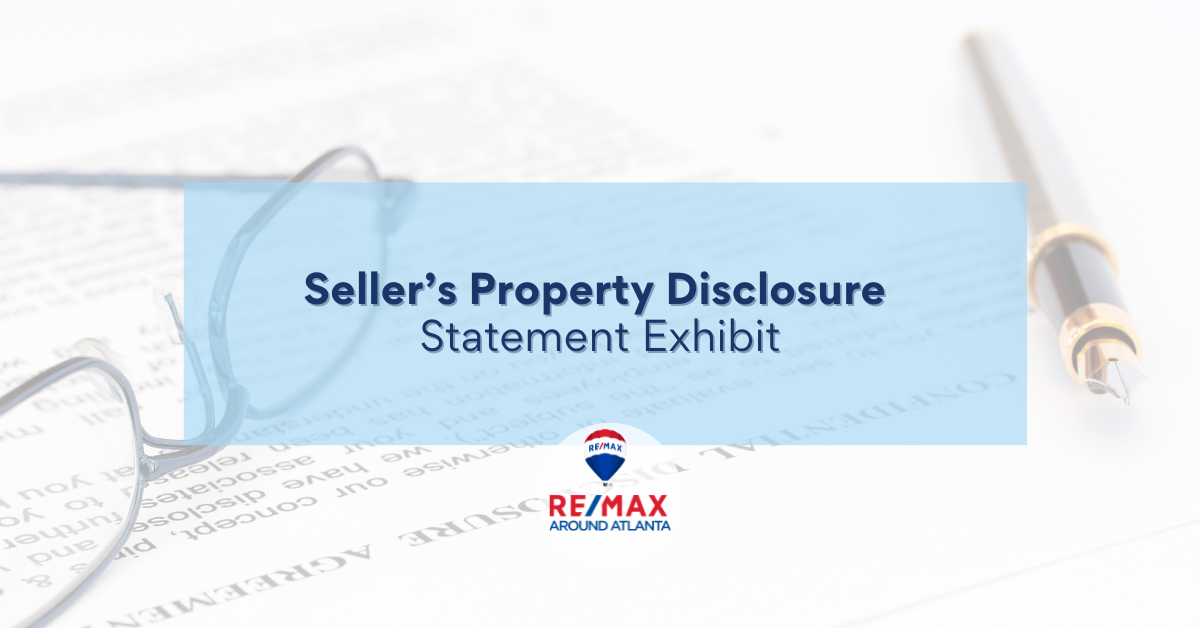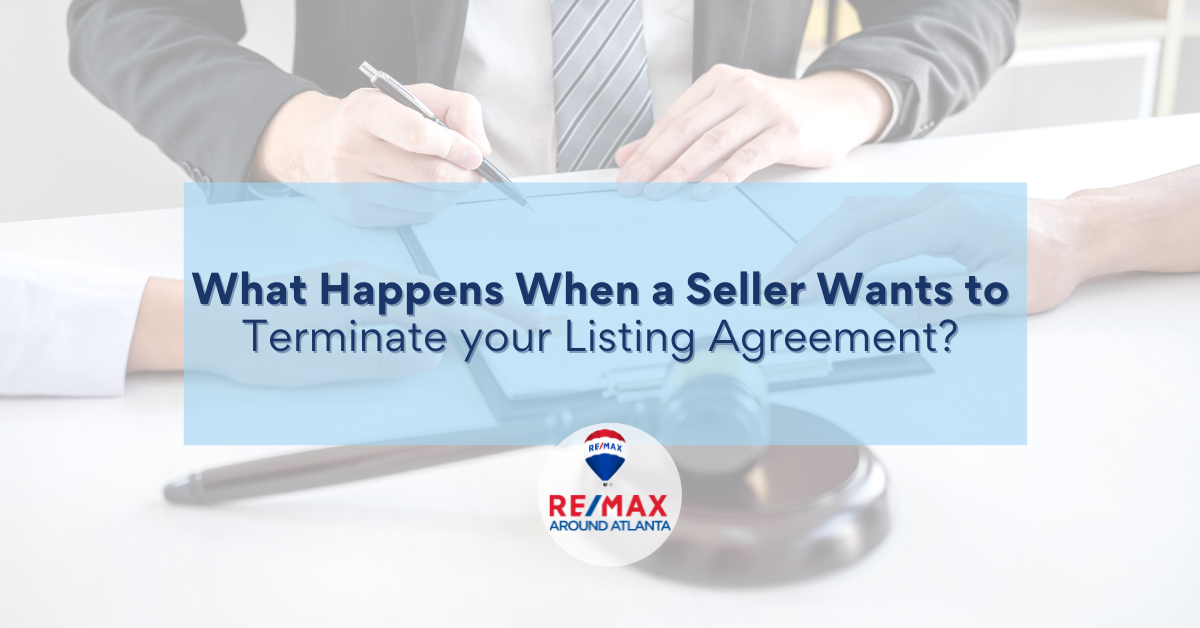|
This is RE/MAX Around Atlanta’s Generative AI use policy. Generative AI is a field that is still extremely new, and it requires thoughtful communication and discussion to determine the most effective approach in this rapidly evolving field. It has massive potential in certain use-cases as well as key limitations we need to understand. While content and advice generated using AI may sound great and save time, there is an inherent risk of bias and inaccuracy. You are encouraged to learn more and experiment, but exercise caution when using it in your business. If you have any thoughts or feedback, please contact a Broker/Owner or In-House Counsel.
What is Generative AI? For the purposes of this policy document, Generative AI refers to technology and tools that can create content like a human, and as a consequence, perform tasks that mimic humans. The type of content (text, images, video, etc.) does not matter, nor does the underlying model/technology that enables the functionality. Popular Generative AI include, but are not limited to,: Chat GPT by OpenAI, and services powered by them Bard by Google DALLE by OpenAI Various AI powered chatbots Best Practices 1. Never upload personal information, customer/client data, or confidential information to any AI model. 2. Never send or publish AI generated content without thorough human review, regardless of whether the audience is internal or external. 3. Do not use generative AI as the sole source for research purposes. They are famous for“hallucinating” false information. Always verify with a second source. 4. Be sure that any content generated by AI does not violate license law, fair housing law or copyright law (be especially cautious with images that may resemble or be modeled using copyrighted images). 5. Keep a record of when you’re using an AI tool. 6. Be vigilant of legal topics (intellectual property, privacy, etc.) surrounding generative AI, and exercise caution. KEY TAKEAWAY: Regardless of whether content originated from Generative AI, YOU are entirely responsible for it as the author, as if you created it yourself. May 24, 2023
0 Comments
We are often asked why we ask for contact information in purchase agreements.
It’s all about sending and delivering notices that are legally sufficient. First, it is important to understand the difference between a Client and a Customer. Clients vs. Customer All brokerage relationships fall into one of two broad categories: (1) broker-client relationships; and (2) broker-customer relationships. In a broker-client relationship, the real estate broker is representing the client and is acting as his or her legal agent in buying, selling, or leasing property. In Georgia, a broker- client relationship can only be formed by the parties entering into a written agreement. The other type of brokerage relationship is known as a broker-customer relationship. With this type of relationship, the broker is not representing the customer in a legal or agency capacity. However, the broker can still work with the customers and help them by performing what are known as ministerial acts. These include, for example, identifying property for sale or lease, providing pre- printed real estate form contracts, preparing real estate contracts at the direction of the customer, and locating lenders, inspectors, and closing attorneys on behalf of the customer. It does not include delivery of notices. What are Notices? If a document only requires the signature of the sender, it’s a notice. If it requires signatures of both parties, it’s an agreement. Notices have to be delivered to an email or physical address or fax included in the contact. There are many notices given in the life of a contract and, of course, in the death of a contract. Think about unilateral 8 day extensions, notice to proceed with financing, counter offers, unilateral termination of contracts, notices from a landlord to a tenant (and vice versa) and exercise of options. The list goes on. Delivery of Notices to Clients If you have an executed Seller Brokerage Engagement Agreement or a Lease Listing/Management Agreement, the Seller or Landlord is your client. The same is true for a Buyer Brokerage Agreement or a Tenant Brokerage Agreement. You can therefore accept legal notices on behalf of your clients, but you may only deliver them to clients in person or to any physical address, e-mail address and/or facsimile number specifically included in the signature block of the agreement. If a physical address (not a PO Box) is in the Address for Receiving Notice section of the signature block, you can mail a Notice to a client. If an email address or a fax number is included, you can email or fax a notice to the client. A telephone number doesn’t work (but a fax number does). If there is no appropriate contact information for delivering a notice to your client, you have to hand deliver. If the client is on the West Coast, you may be on an airplane. And that is why it is so important to include the right contact information for clients in signature blocks. Notices to Customers If you do not have a written agreement with a party or if you have a written agreement that makes the party your customer, you cannot accept notices for them. Examples are the Authorization to Show Unlisted Property and the Agreement to Work with the Buyer as a Customer. Both are customer relationships, even though they are written. If you are representing the opposite party, you have to rely on the information in the signature block. You will be thankful if you remember to have the customer include their contact information in the signature block. Notice to a Represented Party Of course, notice to a represented party can be sent to that party’s agent. That agent is responsible for delivery to their client. References: The ABCs of Agency. GAR CB01 Purchase and Sale Agreement. GAR F201 RE/MAX Around Atlanta encourages all sellers to complete the GAR Seller’s Property Disclosure Statement Exhibit (SPD) to avoid any disclosure issues. If the seller has not occupied the property, the Seller should complete the Seller’s Disclosure of Latent Defect(s) Exhibit. To avoid broker liability, t is imperative that the sellers themselves complete the exhibit. The broker or agent should never complete the exhibit for the seller. In Georgia, a buyer cannot make a claim against the seller’s broker for false statements that were made by the seller in the seller’s disclosure statement - unless the seller’s broker knows the representations to be false. Neither can the buyer sue the seller’s agent for fraud when the seller fails to disclose concealed defects in the property.
Seller’s Agreement in the SPD The SPD includes directions on how sellers should fill out the statement and how buyers should use the exhibit. In completing the disclosure statement, the seller agrees to do the following: (1) answer all questions in reference to the property (which, unless noted, shall include any improvements); (2) leave no questions unanswered; (if the sellers cannot answer, they should use the additional explanations section to explain) (3) answer all questions fully and accurately based upon the best knowledge and belief of all sellers in the purchase and sale agreement. (All sellers must sign the SPD) (4) fully explain in the “additional explanations” paragraph any questions to which the answer is “yes,” referencing the number of the question for which the additional explanation is being given; and (5) promptly revise the statement and provide a copy of the same to the buyer and any broker involved in the transaction if, before closing, there are any material changes in the answers to any of the questions. How Buyers Should Use the SPD Buyers are advised that the disclosure statements should be the starting point for a buyer’s investigation rather than the entire investigation. Caveat emptor or buyer beware is still the law in Georgia. Therefore, if an inspection reveals an issue or concern that would cause a reasonable buyer to investigate further, the buyer will likely be out of luck if the buyer chooses not to do so. The disclosure statement language to buyers is as follows: The answers of Seller below should not be a substitute for Buyer conducting a careful, independent evaluation of the Property. Caveat emptor or buyer beware is the law in Georgia. Buyers are expected to use reasonable care to identify defects in the Property and satisfy themselves that the Property is suitable for Buyer’s needs and purposes. If an independent evaluation of the Property reveals potential problems or areas of concern that would cause a reasonable buyer to investigate further, Buyer may not have legal recourse if Buyer fails to investigate further. GAR has created substantially similar property disclosures for Condominiums (GAR Form F304), for New Construction (GAR Form F310), for Lots and Land (GAR Form F307) that are tailored to those situations. The Seller Property Disclosures Must Be Attached to the Purchase and Sale Agreement. The “Entire Agreement” Clause The Seller Property Disclosure must be attached to the Purchase and Sale Agreement for a buyer to be able to bring successful claims against sellers for breach of contract if sellers make material misrepresentations in the property disclosure statements. This is based upon the “entire agreement clause” (also known as a “merger clause”). The entire agreement clause establishes that the final written agreement between the parties represents the entire agreement of the parties and that the parties are only relying on what is written in the contract. Consequently, an entire agreement clause bars a buyer from relying on alleged misrepresentations not contained in the written agreement. Active Concealment of Defects The Georgia Court of Appeals recently held that buyers could successfully sue the sellers for facts falsely stated in the property disclosure statement, even if the statement was not made part of the contract, if the sellers actively concealed the damage. References: Weissman, Seth. The Red Book on Real Estate Contracts in Georgia (pp. 755-763). BookBaby. Kindle Edition. Seller’s Property Disclosure Statement Exhibit GAR F301 Broker Corner May 10, 2023 You’ve worked hard and written 6 offers to purchase your listing. The seller has rejected them all. Now the seller has decided to terminate the listing. What are your rights?
First, look to the listing to see your options. In Georgia, if there is not an express early termination provision or a material breach of the terms of the listing, clients cannot unilaterally terminate listing agreements or brokerage engagement agreements. That is, sellers do not have a contractual right to terminate and are in breach of the listing contract if they do terminate. If you’ve used the GAR Exclusive Seller Brokerage Engagement Agreement (F101), you won’t find an early termination provision (unless you added it yourself). That is, the GAR listing agreement does not give the seller the right to terminate. Bad stuff happens. The Seller sends you something in writing that says “You’re fired!” or “I am terminating this agreement.” However, you do not have to agree or consent. Your rights are far different with a unilateral termination versus a mutual termination to which you agree. Your Protected Period Section 5 in the GAR listing agreement lays it out. The Protected Period is the period of time commencing upon the unilateral termination of this Agreement by Seller in writing during which Broker shall be protected for its Commission.
Scenario You have an exclusive listing on a property, but the Seller sends you an email firing you. The seller does not have the right to terminate you in the listing agreement and is in default. You do not agree to the termination. The Seller then lists the property with another agent and enters into a Contract to Sell* the Property during your protection period. What are your rights: The Seller owes you a commission per the original listing agreement for a sale to ANY buyer that was shown the property, either in person or virtually, or was provided specific information about or inquired about the Property either directly or through a broker working with the buyer during your protection period. What are the Rights of the 2nd Listing Agent? The Seller may also owe a commission to the 2nd listing agent. Though that is not your concern, it is likely that a closing would take place without your commission paid. You can send an invoice to the seller for your commission, but if the seller declines to pay you, you may have to resort to litigation for your commission. The threat of litigation often results in either a negotiated commission or a full commission. Commission rights and obligations in the GAR listing agreement survive termination. Do You Have to Provide Termination Paperwork to The Seller? You are not required to provide termination paperwork to the seller. However, the GAR Unilateral Termination of Brokerage Engagement Agreement (F155) clearly notes that the termination in unilateral, is not mutual and that the broker’s commission rights are not limited, waived or terminated. It also includes that the client must pay the cost to remove the listing from FMLS. Your rights are still retained even if you do not have this signed, but seeing this in writing (not just verbally) may cause the client to think twice before proceeding. This is the language in the Unilateral Termination In terminating the Agreement, Broker is directed by Client not to perform real estate brokerage services on behalf of the Client after the Termination Date of this notice to terminate. Nothing herein shall be construed as an agreement between the Client and Broker to mutually terminate the Agreement or to limit, waive or terminate Broker’s rights to a commission or the reimbursement of fees and costs resulting from the unilateral termination of the Agreement by Client. Unilateral Termination of this Agreement by Client does not eliminate the Client’s legal obligation to Broker for commission and/or fees due to Broker as specified in the Brokerage Engagement Agreement. If the Brokerage Engagement Agreement is a listing agreement, the cost to remove early the listing from any multiple listing service in which the property is listed shall be paid by the Client. Exception to Protected Period Commission Obligation Does Not Apply If a seller hires another exclusive listing agent following a normal expiration of a listing agreement, but during a protected period, the first listing agent’s commission rights during the protected period are ended. However, this exception does not apply in the case of a seller’s unilateral termination of a listing. *Contract to sell includes a lease, lease purchase or lease with an option to purchase. References: GAR Exclusive Seller Brokerage Engagement Agreement (F101) Weissman, Seth. The Red Book on Real Estate Contracts in Georgia (p. 1435). BookBaby. Kindle Edition. Broker Corner 5/4/23 |
RMAAReal Estate News, Brokers Blog & More Categories
All
Archives
July 2024
|





 RSS Feed
RSS Feed